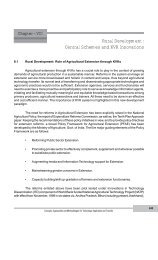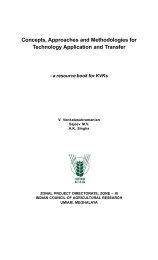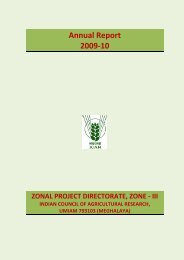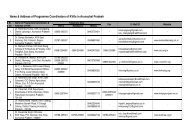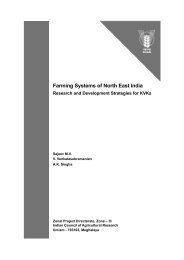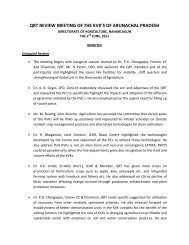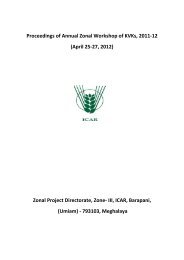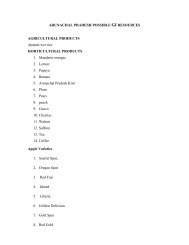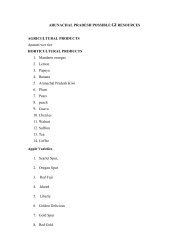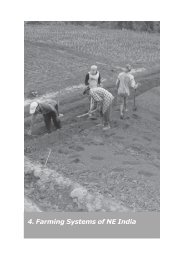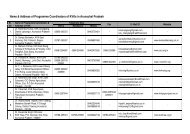Training Methodology for KVK Scientists - ICAR, Zonal Project ...
Training Methodology for KVK Scientists - ICAR, Zonal Project ...
Training Methodology for KVK Scientists - ICAR, Zonal Project ...
Create successful ePaper yourself
Turn your PDF publications into a flip-book with our unique Google optimized e-Paper software.
V<br />
V. Venkatasubramanian, Sajeev, M.V. & A.K. Singha.<br />
4. Sponsored training programmes (On and Off Campus)<br />
- For farmers, rural youth and extension personnel<br />
5. Vocational training programmes (On and Off Campus)<br />
- For farmers and rural youth<br />
Based on duration, the <strong>KVK</strong> trainings can be classified to:<br />
1. Short duration trainings (1-7 days) &<br />
2. Medium duration trainings (8-14 days) and<br />
3. Long duration trainings (3-4 weeks)<br />
5.3 Basic Concepts of <strong>Training</strong><br />
One of the important duties of the <strong>KVK</strong> scientists is to communicate the research findings,<br />
new innovations and technologies to the farmers and needy people. It involves conducting proper<br />
demonstrations of the new technologies as well as training the technology users <strong>for</strong> providing with<br />
required knowledge and skills <strong>for</strong> adopting the suggested technologies. There<strong>for</strong>e, training is an<br />
essential component <strong>for</strong> the successful dissemination and adoption of latest agricultural technologies.<br />
<strong>Training</strong> indicates a planned activity to which a person or group of persons are subjected to<br />
induce learning which brings about desired behavioural changes that are beneficial to them in their<br />
day to day life or vocation. In terms of Lynton and Pareek (1990) training consists largely well organized<br />
opportunities <strong>for</strong> participants to acquire necessary understanding and skill. <strong>Training</strong> aims at bringing<br />
about lasting improvement on the job. The kind of education we call as training is not <strong>for</strong> knowing<br />
more but behaving practically and differently. <strong>Training</strong> is a powerful tool in the hands of <strong>KVK</strong> scientists<br />
to develop competence in their clients. New concepts of training such as andragogy, experimental<br />
learning techniques such as sensitivity training, transactional analysis, in basket exercise, critical<br />
incidence technique etc., provide new approaches to enhance training outcome. <strong>Training</strong> of farmers,<br />
rural leaders and extension personnel is a must to face the challenges posed by the changing<br />
technological and economical scenario.<br />
5.4 Definition of <strong>Training</strong><br />
<strong>Training</strong> is a process of acquisition of new skills, attitude and knowledge in the context of<br />
preparing <strong>for</strong> entry into a vocation or improving ones productivity in an organization or enterprise.<br />
104<br />
Concepts, Approaches and Methodologies <strong>for</strong> Technology Application and Transfer



